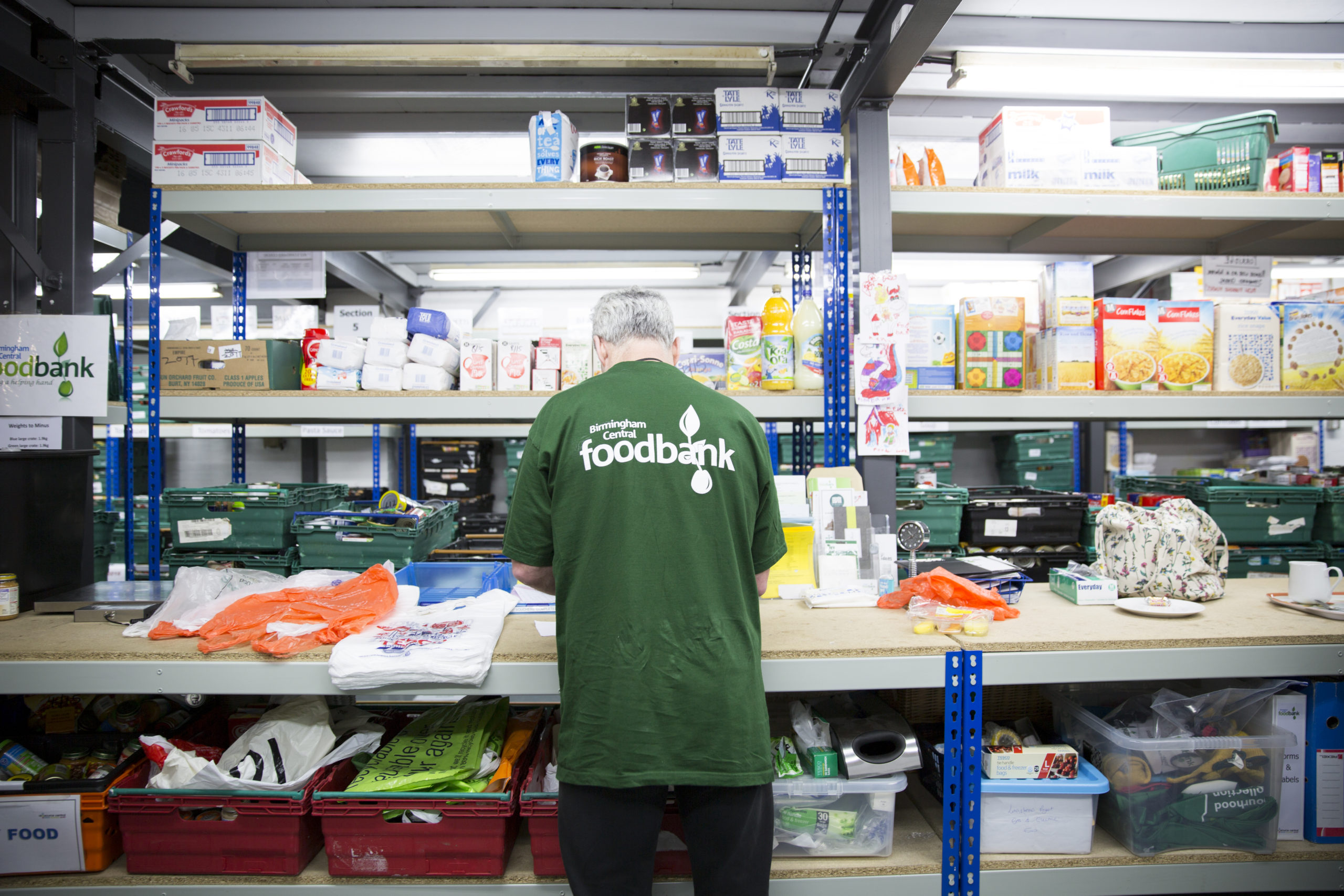By Emily Spoor, Research Officer
New figures out today show that almost one in three people whose only income was through social security had been to a food bank in the previous year – these figures more than highlight that now is not the time to cut £20 a week from their income.
This new evidence, collected between November 2020 and January 2021, showed that one in 12 (7%) people aged 16 and over in England, Wales and Northern Ireland had used a food bank in the previous year – representing almost three and a half million people.
This new data from the Food and You survey shows that far too many people are being let down by the benefit system. Our social security system should protect people from being pulled into poverty and be strong enough to pull people out – but in reality the benefit system forces too many to go without essentials such as food.
The last year has seen unprecedented levels of need for food banks
2020/21 has been an extraordinary year, and the pandemic has directly contributed to an increased need for support from food banks. Food banks in the Trussell Trust network distributed 33% more food parcels in 2020/21 compared to 2019/20, reaching a record 2.5 million parcels.
However, we know that this is just the tip of the iceberg. When asked about whether they had been supported by a food bank or other emergency food provider in the last 12 months 7% of people surveyed by Food and You had received support from an emergency food provider in the previous year (The survey ran from 20th November 2020 to 21st January 2021). While they are different methodologies to put this into context the State of Hunger (2021) estimated that 2.5% of households in the UK had used a food bank in 2019/20.
Our social security system is failing to protect people from being pulled into poverty
Our research shows that extremely low income, including from the benefit system, is a key driver of food bank use. This new data also suggests that: people in the lowest income brackets are twice as likely to have received emergency food support (17% vs. 7% overall).
Shockingly, more than half (57%) of people who solely receive income from social security are food insecure, meaning they can’t reliably afford to eat enough food compared to 16% of all households.
The social security system is failing to provide too many people with the income they need to afford food – and the £20 cut to Universal Credit expected in the autumn will only make this worse.
People in poor health are more at risk of needing support
People referred to food banks in the Trussell Trust network are three times more likely to be disabled than the UK average. Our research has consistently shown that people with health conditions are more likely to need support from a food bank.
The new figures from Food and You reinforces this, finding that people who reported that they had a long–term health condition were more than twice as likely to be food insecure as people who did not (25% vs 11%) and three times more likely to need support from a food bank (13% vs 4%).
As well as the problems with the benefit system that they experience, disabled people often face extra costs, such as higher housing, utilities, or transport costs, which can put them at increased risk of needing to use a food bank.
Households with any children and larger families more likely to need support
The last year has seen consistent challenges to UK government on levels of child poverty and the figures released today again highlight this issue. One in four (24%) people living with children were food insecure, compared to 12% in households without children. People living with children were almost twice as likely to report needing support from a food bank than households without children (11% vs 6%).
Larger households were also more at risk of being food insecure. A quarter (24%) of households with five or more people were food insecure. This is more than twice the rate of households of two people (11%). These households were also more likely to report needing support from a food bank (11% vs 6% of households of two people).
This is consistent with what we find in food banks in the Trussell Trust network. Parcels provided to children made up 39% of the support provided by food banks in 2020/21 were children, even though children make up only 20% of the UK population. Further, among families with children referred to a food bank in early 2020, nearly two in five (39%) had three or more children. This is nearly three times the rate in the general population, where just 14% of families with children have three or more children.
The UK Government needs to develop a plan to end the need for food banks – this should start with not going ahead with the planned cut to Universal Credit and Working Tax Credit this autumn
To end the need for food banks we need to ensure that our UK social security system provides everyone with enough to afford the essentials.
This should start with making the £20 weekly increase to Universal Credit permanent and extending it to legacy benefits. This would protect the incomes of those already struggling, help disabled people (who are more likely to claim legacy benefits) to meet increase the costs they face, and provide a vital lifeline for the 5 million families who are claiming Universal Credit.



